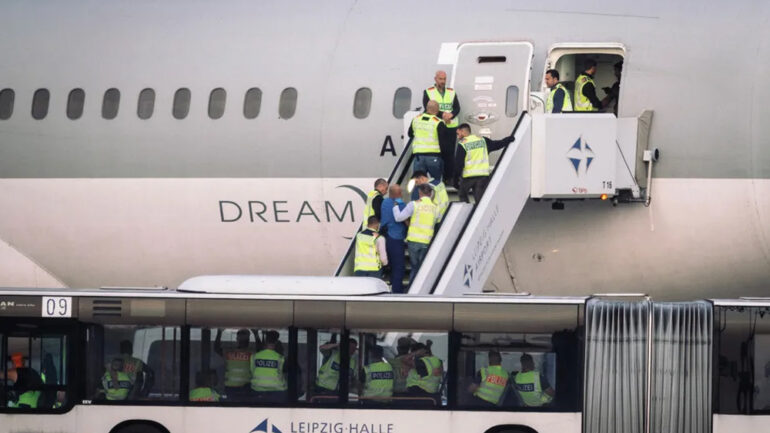RASC News Agency: The German government has announced plans to dispatch an official delegation to Kabul in the coming days, seeking to accelerate the deportation of Afghanistani migrants convicted of criminal offenses. The move marks Berlin’s latest attempt to engage the Taliban regime, despite widespread international condemnation of the group’s authoritarian rule and systematic dismantling of human rights.
German Interior Minister Alexander Dobrindt confirmed that preparations for the visit were underway, emphasizing that the delegation’s mandate is to negotiate a “structured framework” for the forced return of migrants with criminal convictions. German media have reported that Qatar long positioned as a broker between Western capitals and the Taliban is once again facilitating the talks.
This approach is not without precedent. In recent months, German authorities discreetly hosted Taliban representatives at the Afghan Embassy in Berlin and at the consulate in Munich. Those quiet diplomatic contacts ultimately paved the way for the deportation of 81 convicted Afghanistani migrants in July 2025. A year earlier, 28 individuals had been returned in August, but the process was abruptly halted when the Taliban objected highlighting the paradox of European governments seeking cooperation from an unrecognized regime that rules through repression and intimidation.
The prospect of renewed deportations has triggered fierce criticism from human rights advocates, who warn that sending people back to Afghanistan under Taliban control constitutes a grave violation of international protection standards. They stress that deportees could face persecution, arbitrary detention, or worse, given the absence of judicial safeguards and the Taliban’s record of targeting returnees suspected of “Western ties.” Advocacy groups have urged Berlin to honor its legal obligations under the 1951 Refugee Convention and ensure that every case undergoes a fair, transparent review before removal.
The domestic political fallout in Germany has been equally intense. Left-leaning parties and civil society organizations have condemned the government’s plan as reckless, inhumane, and politically expedient. They argue that alternatives such as rehabilitation programs, enhanced monitoring, and integration efforts are both more ethical and more sustainable. Meanwhile, right-wing factions and segments of the public have applauded the move, portraying it as an overdue measure to protect national security and curb crime.
Beyond Germany’s borders, the policy raises troubling questions about Europe’s creeping normalization of the Taliban. While no Western state has formally recognized the regime, initiatives such as these effectively grant the Taliban a form of de facto legitimacy despite the group’s entrenched record of gender apartheid, censorship, and violent repression. Analysts caution that engaging the Taliban on security matters, while ignoring its systemic abuses, risks emboldening the group and further eroding the rights of Afghanistani citizens and refugees alike.
For the thousands of Afghanistani asylum seekers currently residing in Germany, the stakes could not be higher. If Berlin pushes ahead with its deportation agenda, many face the terrifying prospect of being uprooted from relative safety and delivered into the hands of a regime that thrives on fear and coercion. Critics argue that such a policy not only betrays humanitarian values but also undermines Germany’s standing as a defender of human rights on the global stage.






